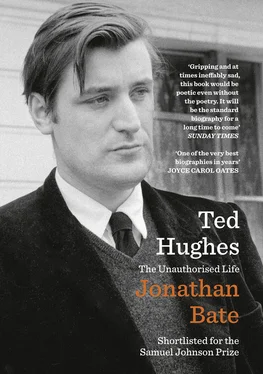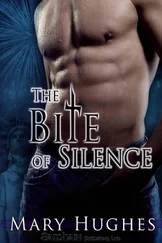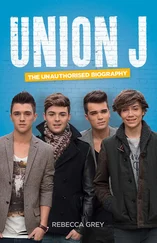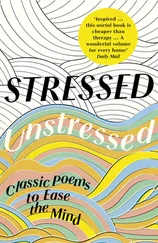1 ...6 7 8 10 11 12 ...18 ‘Intuitive’ is the key word in Hughes’s reflections on astrology. If the danger of a horoscope is that it is an encouragement to the abnegation of responsibility for one’s own actions, a forgetting of Shakespeare’s ‘the fault, dear Brutus, is not in our stars, / But in ourselves’, the value of a horoscope is its capacity to confirm one’s best intuitions. The major superstitions – astrology, ghosts, faith-healing, the sixth sense whereby you somehow know that a person you love has died even though they are far away – are, Hughes thought, impressive because ‘they are so old, so unkillable, and so few. If they are pure nonsense, why aren’t there more of them?’16
His birth was formally registered in Hebden Bridge, the nearest large town. Father was recorded as William Henry Hughes, ‘Journeyman Portable Building maker’, that is to say a carpenter specialising in the assembly of sheds, prefabs and outbuildings. Mother was Edith Hughes, formerly Farrar.
William Hughes was born in 1894.17 His father, John, was a fustian dyer, known as ‘Crag Jack’. Family legend made him a local sage – ‘solved people’s problems, wrote their letters, closest friends the local Catholic and Wesleyan Ministers, though he spent a lot of time in pubs’.18 Crag Jack was said to have been a great singer. He was a bit of a ‘mystery man’, who came to the Calder Valley from Manchester and, before that, Ireland. In the young Ted’s imagination, he is perhaps a kind of bard or shaman, certainly a conduit of Celtic blood.
‘Crag Jack’s Apostasy’ is one of the few early Hughes poems to mention his family directly. There Jack clears himself of the dark influence of the church that ‘stooped’ over his ‘cradle’. He finds a god instead beneath the stone of the landscape.19 Here Ted takes on Grandfather Jack’s identity: the cradle stooped over by the dark church is clearly his own, shadowed by Mount Zion.
The story in the family was that Crag Jack died from pneumonia at the age of forty, leaving Willie Hughes a three-year-old orphan, together with his younger brother and elder sister. But there is a little misremembering or exaggeration here. The 1901 census records that John Hughes, aged forty-seven, and his wife Mary were living over a shop in King Street, Hebden Bridge, with their nineteen-year-old daughter, also called Mary, a ‘Machinist Fustian’, and the two boys, John aged eight (born Manchester) and Willie, seven (born Hebden Bridge), together with a young cousin called Elizabeth. Crag Jack died in 1903, closer to the age of fifty than forty. Willie was not three but nearly ten when he lost his father. Ted’s widowed Granny Hughes kept on the King Street shop for many years. She died in her eighties.
Like her husband, she had been born in Manchester. Her father was apparently a major in the regular army, his surname also being Major. His station was Gibraltar, so family tradition knew him as ‘Major Major of the Rock’. He married a short, dark-skinned, ‘Arab looking’ Spanish woman with, according to Ted, a ‘high thin nose like Olwyn’s’.20 This association with Spain and a distant Rock, an outpost of empire overlooking the Mediterranean, gave Ted the idea that he might have some exotic Moorish blood in him. A touch of blackness, akin to that of Emily Brontë’s Heathcliff, found on the streets of Liverpool?
It was the Farrar family, not the Hughes, who dominated Ted’s childhood. In May 1920, Willie married Edith Farrar, who was five months pregnant with Gerald. There was a gap of eight years before Olwyn’s birth. Ted was the youngest.
Farrar was a distinguished name, woven into the historical and spiritual fabric of English poetry. Edith’s family traced their ancestry back to a certain William de Ferrers, who fought in the Battle of Hastings as William the Conqueror’s Master of Horse. Later generations of Farrars became famous in Tudor and Stuart times. One of Ted’s most prominent early poems was ‘The Martyrdom of Bishop Farrar’, telling of how his ancestor was ‘Burned by Bloody Mary’s men at Caermarthen’. It was a poem of fire and smoke, evocative of the tradition of Protestant brimstone sermons that still lived in the Mount Zion Primitive Methodist Chapel over the road. ‘If I flinch from the pain of the burning,’ said the bishop on being chained to the stake, ‘believe not the doctrine that I have preached.’21 A Stoic gene to prepare Ted for his travails?
Nicholas Farrar (1592–1637), a collateral descendant of the martyred bishop, was a scholar, courtier, businessman and religious thinker. In his own way, Ted Hughes would grow up to be all these things. Cambridge University was the making of Nicholas, but he also owed a debt to the New World in that his family was closely involved with the colonial projects of the Virginia Company. The seventeenth-century Farrars eventually settled in the rundown village of Little Gidding, not far from Cambridge, where they established a community of faith and contemplation. It was to Farrar that fellow-Cambridge poet George Herbert sent the manuscript of his poetry collection The Temple from his deathbed with the instruction that it should be either burnt or published. Farrar saw that it was published, with the result that Herbert’s incomparably honest poetry of self-examination has remained in print ever since. As Hughes grew up, learning of his Farrar heritage, he could not have dreamed that a day would come when he too would be entrusted with seeing into print another poetry collection prepared at the moment of death, this one called Ariel . Like his Farrar ancestor, he had the responsibility of saving a loved one’s confessional poetry for posterity. Decisions as to whether to burn or preserve literary manuscripts would trouble him throughout his adult life.
What he did come to know, as he began reading in the canon of English poetry as a teenager, was that T. S. Eliot, the most revered of living poets, took deep religious solace from the example of the Farrar family: his great wartime meditation on the cleansing fire of faith, his fourth Quartet , was called ‘Little Gidding’. Eliot’s language seeps into Hughes’s own metaphysical lyric on his ancestor, ‘Nicholas Ferrer’ (Edith and her children were inconsistent in their spelling of the historic family name). Famously, in ‘Little Gidding’ Eliot began with spring in midwinter and ended with an epiphany of divine fire in the remote chapel deep in the English countryside. There is a catch of deep emotion in Hughes’s voice as he speaks this phrase in his recorded reading of Eliot’s poem. His own poem ‘Nicholas Ferrer’ is located in that same Little Gidding chapel, now ‘oozing manure mud’. The speaker tracks Eliot’s footsteps, past the same pigsty, in the same winter slant light. An ‘estranged sun’ echoes Eliot’s ‘brief sun’ that flames the ice on what in retrospect seem very Hughesian ponds and ditches. Nicholas and his family had ‘Englished for Elizabeth’ but in Hughes’s desolate modern November ‘the fire of God / Is under the shut heart, under the grave sod’.22
Hughes’s poem makes the death of Nicholas Farrar into a turning point in English history. It invokes the desecrating maw of Oliver Cromwell. The Little Gidding community was broken up by Puritans, who saw vestiges of Romish monasticism in their practices. Nicholas’s books were burnt. For Hughes, influenced by the Anglo-Catholic Eliot’s idea of a ‘dissociation of sensibility’ that fractured English culture and poetry at the time of the Civil War, Puritanism was the great enemy of those ‘ancient occult loyalties’ to a deeper, mysterious world that were embodied by such superstitions as astrology.
Ted’s belief in a world beyond the normal came from his mother. Edith Farrar felt that the spirit world was in touch with her. Ever since childhood, she had often felt the sensation of a ghostly hand. One night in June 1944 she was woken by an ache in her shoulder. She got up and saw crosses flashing in the sky above St George’s Chapel, which was across the road from their Mexborough home. She tried to wake William (whom she called Billie) to tell him that a terrible battle was going on somewhere and that thousands of boys were being killed. The next day the radio announced that the D-Day landings had begun early that morning.23 Later, when she and her husband moved to the Beacon, she saw a shadow in the house. She learned that the previous owners had died and their daughter had sold the house and moved into Hebden Bridge. She told the shadow, who was the mother, where her daughter now lived. It never reappeared.24
Читать дальше











